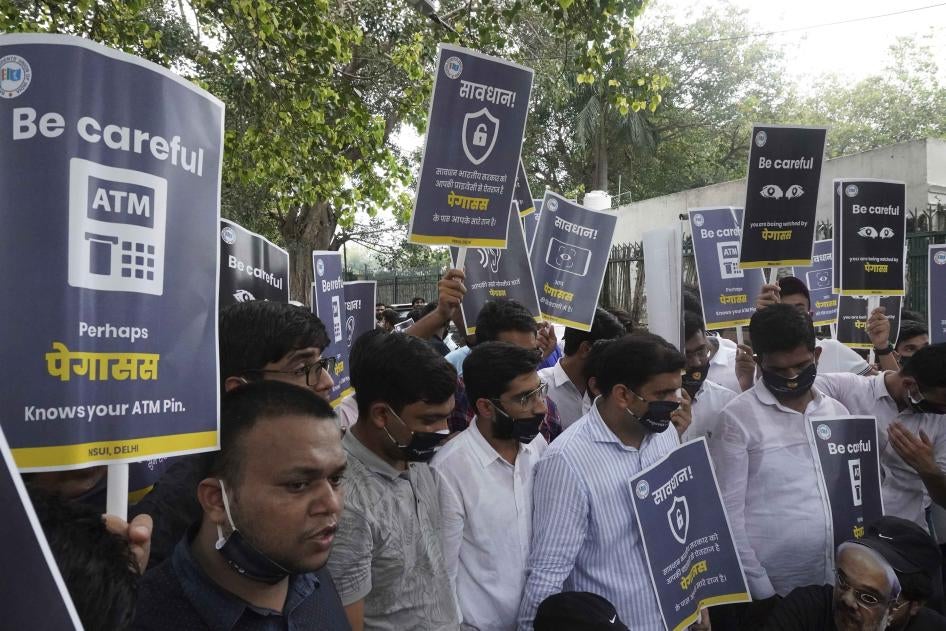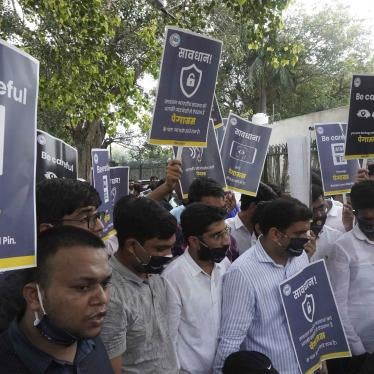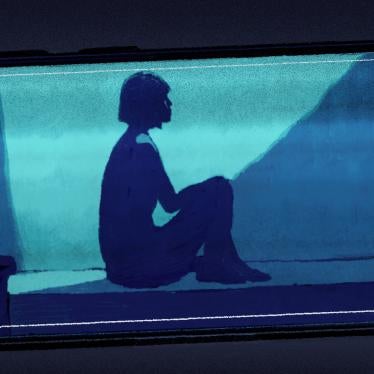This week, Indian Prime Minister Narendra Modi will give a keynote address at the Australian Strategic Policy Institute’s Sydney Dialogue, along with Prime Minister Scott Morrison. The dialogue is billed as a “world-first summit for emerging, critical, and cyber technologies.”
Australia is deepening its trade and investment ties with India, and technology has emerged as a key element in their growing bilateral and multilateral cooperation. Modi will describe how India’s technology industry is solving global problems. His administration has called his flagship program, Digital India—transforming India into an empowered digital economy with an emphasis on better delivery of government services—as one of India’s biggest success stories.
However, what the audience will not hear is how the Modi government has been using technology since it came to power in 2014 to curtail rights at home as part of an escalating crackdown on freedom of expression, association and peaceful assembly.
Even as his government promotes a more digitally connected India, it shuts down the internet more than any other country in the world, increasingly to silence peaceful protests and criticism of the government. This has not only denied millions of people their fundamental rights, but has also affected businesses and cost the Indian economy billions of dollars in losses.
As part of its playbook to quell dissent and gain greater control over online content, Modi’s Bharatiya Janata Party (BJP)-led Hindu nationalist government enacted new internet rules targeting social media companies, digital news services, and curated video streaming sites that will most likely have global consequences. These rules include overbroad restrictions on content, encourage self-censorship, and require traceability of information that compromise end-to-end encryption on platforms such as WhatsApp or Signal.
The rules also require social media companies with more than 5 million registered users in India – which pretty much means all the major internet companies – to appoint local staff in-country. With more of their personnel living in India, where they could face criminal liability and prosecution, companies will also find it difficult to resist arbitrary and disproportionate government orders to take down content or hand over data on users.
In February, even before the rules came into force, the government threatened to punish Twitter’s India-based employees with fines and jail terms after Twitter shut down some, but not all, accounts ordered by the Indian authorities, that were critical of the government’s handling of the farmers’ protests.
Indian authorities are increasingly arresting human rights defenders, journalists, students, and members of religious minorities in politically motivated cases including under counterterrorism, sedition, and national security laws. At the same time, its information technology law and internet rules put pressure on social media companies to censor content and share user information to aid these prosecutions.
Police in India’s northeast state of Tripura have filed terrorism cases against 102 social media handles for posting content related to communal violence incidents in mid-October in which Hindu mobs attacked mosques and properties owned by Muslims, and sought information on these account owners. Some of these accounts appear to have been targeted because they were critical of state authorities’ response to the violence.
Indian authorities have also been implicated in using the Israeli-produced spyware Pegasus to target activists, journalists, and apparent opponents. The government has repeatedly stalled attempts to investigate these allegations. Its refusal to disclose information to the Supreme Court, arguing national security implications, finally led the court to appoint an independent committee to investigate.
The executive branch has extremely broad powers of surveillance devoid of any meaningful safeguards, with no judicial authorization or independent oversight. The Modi government has proposed a law on personal data protection that will further enhance state surveillance powers by granting exemptions to government agencies on vague and overbroad grounds.
Australia too has passed problematic laws that grant expansive digital surveillance powers to law enforcement agencies, without adequate safeguards to protect privacy.
But strengthening bilateral ties through technology should come with a frank discussion on shortcomings and a deepening commitment not to compromise on fundamental rights, including freedom of speech and assembly, and privacy, encryption, and data protections. As part of this, Australia should ask the Indian government to drop criminal charges against activists and critics in politically motivated cases, roll back internet rules, and enact a data protection law that restricts the government’s discretionary powers.
Instead of using technology as a tool for repression, the Indian government should act in a manner befitting a rule-of-law-based democracy and use technology to shore up rights, make governance more accountable, and lead to a more just and equitable society.









